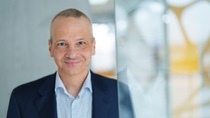Focus

Our new strategy sets a clear focus on the management of BASF’s portfolio. Going forward, we will differentiate between our core businesses, consisting of the segments Chemicals, Materials, Industrial Solutions and Nutrition & Care, and our industry-specific standalone businesses Environmental Catalyst and Metal Solutions, Battery Materials, Coatings and Agricultural Solutions. We will apply different value-creation levers to strengthen and profitably grow our chemical core and to unlock the value of our standalones. A new approach to capital allocation based on clear portfolio roles of our businesses will improve capital discipline and cash generation. Enhancing the footprint of our core businesses in China, India and ASEAN will contribute to our future success.











